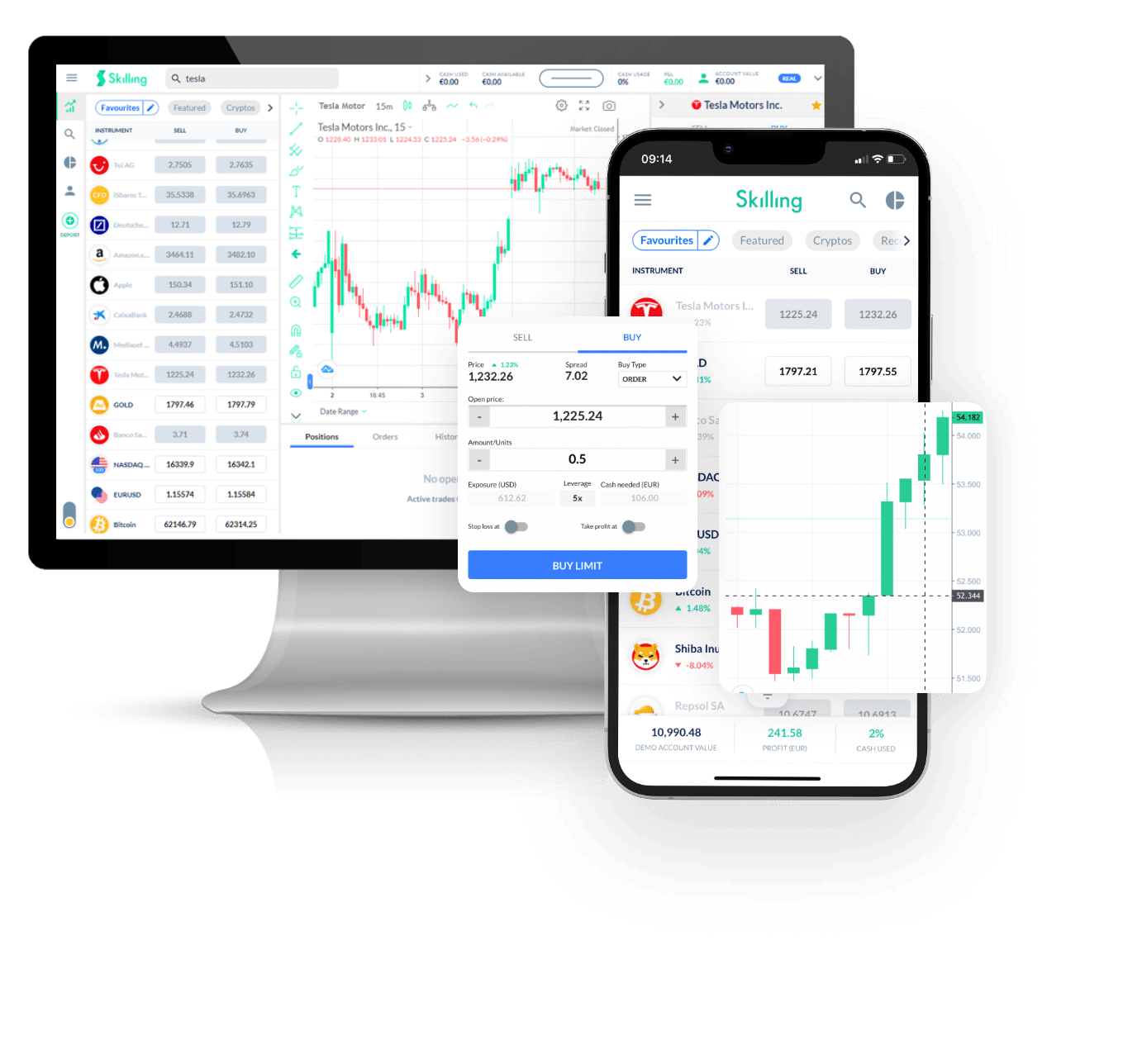Loading...
Trade [[data.name]]
[[ data.name ]]
[[ data.ticker ]]
[[ data.price ]] [[ data.change ]] ([[ data.changePercent ]]%)
Low: [[ data.low ]]
High: [[ data.high ]]
About
History
Competitors
About
History
Competitors
Daimler AG is now known as the Mercedes-Benz Group AG. Daimler-Benz was founded in 1926 following a merger between Benz & Cie and Daimler Motoren Gesellschaft. It has since been one of Europe’s most prestigious automobile manufacturers. It is the parent group of the Mercedes-Benz brand, which has become one of the most important performance car models in the 20th and 21st centuries.
The parent group has undergone a change of name on multiple occasions, becoming DaimlerChrysler in 1998 and later Daimler AG in 2007. The 1998 move to DaimlerChrysler followed a ground-breaking merger between the German and US vehicle manufacturers following an exchange of shares.
In early 2022, Daimler CEO, Ola Kallenius, announced the company would be rebranding to Mercedes-Benz by the end of the year as it seeks a greater valuation based on a renewed focus on the electric vehicle (EV) marketplace.
The Daimler share price has fluctuated considerably since the turn of the new millennium. Having reached all-time highs of €84.51 in 1998, Daimler stock proceeded to fall in 2000, before bottoming out at €25.33 in September 2001.
Daimler appeared to enjoy a fruitful two-year period between 2005-07 prior to the global financial crash. The Daimler share price rose from €26.40 in May 2005 to a high of €64.37 in October 2007. The global recession saw Daimler shares reach new lows of €15.54 in March 2009 before a strong recovery to €78 by March 2015.
The arrival of the Covid-19 pandemic caused great uncertainty to the automotive industry, as production ceased overnight, causing Daimler shares to fall to €21.50 in March 2020. However, the news of the rebrand and a renewed focus on EVs has seen it recover to €61.35 by the end of 2022.
There are several companies that compare with Daimler. Volvo Group is a major player in the European automotive industry, manufacturing a plethora of road vehicles, as well as trucks, buses, and construction equipment.
Elsewhere in the European automotive market, there is a string of German competitors to Daimler. BMW has cemented its position as a proven designer, and manufacturer of high-performance estate and sports cars, and next-generation SUVs. BMW stands proudly alongside the likes of Mercedes-Benz when it comes to product innovation and advancements in driver technology.
| Swap long | [[ data.swapLong ]] points |
|---|---|
| Swap short | [[ data.swapShort ]] points |
| Spread min | [[ data.stats.minSpread ]] |
| Spread avg | [[ data.stats.avgSpread ]] |
| Min contract size | [[ data.minVolume ]] |
| Min step size | [[ data.stepVolume ]] |
| Commission and Swap | Commission and Swap |
| Leverage | Leverage |
| Trading Hours | Trading Hours |
* The spreads provided are a reflection of the time-weighted average. Though Skilling attempts to provide competitive spreads during all trading hours, clients should note that these may vary and are susceptible to underlying market conditions. The above is provided for indicative purposes only. Clients are advised to check important news announcements on our Economic Calendar, which may result in the widening of spreads, amongst other instances.
The above spreads are applicable under normal trading conditions. Skilling has the right to amend the above spreads according to market conditions as per the 'Terms and Conditions'.

Trade [[data.name]] with Skilling
All Hassle-free, with flexible trade sizes and with zero commissions!*
- Trade 24/5
- Minimum margin requirements
- No commission, only spread
- Fractional shares available
- Easy to use platform
*Other fees may apply.
FAQs
What are the key drivers affecting Daimler's stock price?
+ -
Daimler's stock price is impacted by a number of factors, including economic conditions, industry trends, customer preferences and supplier prices.
In terms of economic conditions, Daimler's stock price is highly sensitive to macroeconomic developments such as interest rates and exchange rate fluctuations. The company is also affected by industry trends, such as the rise of electric vehicles and connected cars, which can lead to changes in customer preferences.
Who owns most Daimler shares?
+ -
Daimler AG is a publicly-traded German automotive corporation, best known for its Mercedes-Benz line of luxury cars. As of July 2020, the majority of Daimler's shares are owned by institutional investors (48.07%), followed by BAIC Group (9.98%), Tenaciou3 Prospect Investment Limited (9.69%), Kuwait Investment Authority (6.84%) and retail investors (25.42%).
These investors are spread across the world, with many based in Germany, Europe and the United States.
Do Daimler shares pay dividends?
+ -
Yes, Daimler AG offers a dividend to its shareholders. The company has paid a dividend annually since 1951 and is currently offering a dividend of €5 per share as of 2021. Furthermore, the company has a dividend payout ratio of around 45% on average, meaning that 45% of its profits are distributed to shareholders in the form of dividends.
This suggests that Daimler has a good track record of rewarding its shareholders for their investments. Investors looking to grow their wealth through a reliable dividend could consider investing in Daimler shares.
Why Trade [[data.name]]
Make the most of price fluctuations - no matter what direction the price swings and without capital restrictions that come with buying the underlying asset.
CFDs
Equities
Capitalise on rising prices (go long)
Capitalise on falling prices (go short)
Trade with leverage
Hold larger positions than the cash you have at your disposal
Trade on volatility
No need to own the asset
No commissions
Just low spreads
Manage risk with in-platform tools
Ability to set take profit and stop loss levels

